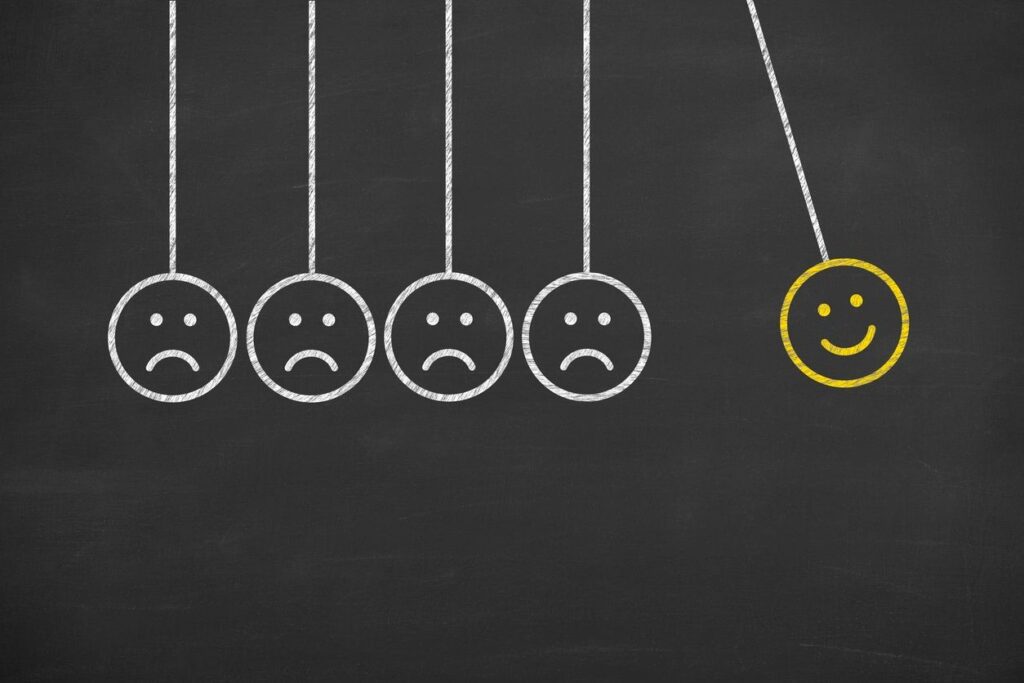Cognitive Behavioral Therapy (CBT)
If you’ve ever been to drug and alcohol treatment centers before, you have probably heard the term CBT quite a few times. It stands for Cognitive Behavioral Therapy and it is used to change a negative thought process into a positive one. This form of therapy is beneficial in drug and alcohol treatment, and the techniques used are simple but extremely effective. It can also be used to help individuals with a dual diagnosis.
CBT Techniques
Therapists in drug and alcohol rehabs utilize CBT in therapy groups due to its long lasting affects in treating cognitive distortions. Cognitive distortions impact behavioral patterns and thought processes. Teaching different techniques that revolve around CBT, helps retrain your brain towards a healthier mindset. Some of these techniques include:
- Cognitive Reframing – involves reframing your thought process into a more positive one. This helps identify negative patterns to transform them into being productive.
- Guided Discovery- identifying your view points and challenging them. This technique allows you to see other peoples point of view on a situation.
- Exposure Therapy- involves exposing fears and phobias in order to learn to deal and cope with them. This technique can boost your self esteem.
- Journaling- writing down negative thoughts that you have been having and how they can be turned into a positive thought instead.
- Activity scheduling- this technique is used to combat anxiety about an upcoming event or appointment. It helps establish healthy habits and combats putting things off until last minute.
- Behavioral experiments- these consist of talking about predictions on what could go wrong in a situation. Then a therapist will discuss all of the possibilities and the likelihood that none of the anxieties will actually come to fruition.
- Relaxation and stress management- there are several forms to this one which include deep breathing, muscle relaxation, and imagery. Describing how you feel in the present moment lowers stress and overtime will help you cope with anxiety.
- Role play- this is used to lessen fear and can improve many factors in behavioral patterns including social skills, problem solving skills, and even communication.
- Successive approximation – this technique is used to break down tasks step by step, to make them appear less overwhelming. Overtime, you may build confidence by eliminating procrastination and anxiety about a certain situation.

CBT Is Individualized
CBT is not for everyone and will be assessed by a substance abuse therapist before being used in a therapy session. Unlike more intense forms of therapeutic approaches, CBT is not risky and success is up to the individual’s effort.
Cognitive Behavioral Therapy can be uncomfortable for some, due to its exposing nature. Being vulnerable with other people can be scary at first, but it is worth it in the end. Trusting the process is key to being successful.
In the beginning of CBT, it is normal to feel anxious or stressed. Anxiety can be brought on by discussing fears and phobias. Confronting these issues head on is important to see a change in negative thought patterns. With prolonged sessions and incorporating the techniques listed above, lifestyle changes will improve. This therapy does not work over night and improvement may not be seen for a few weeks.
The Goals Of Cognitive Behavioral Therapy
As with any therapeutic approach, leaving better than you came in is the goal. Cognitive Behavioral Therapy, in particular, aims towards shifting thought processes to make them healthier and more productive. If willingness and consistency is conducted throughout sessions, you will see a change in your thinking and behaviors. This ultimately will lead you to a more fulfilling life and future.
Your thoughts, feelings, and behaviors affect each other and through working with several different techniques, your therapist can help determine which one suits you the best. At Pennsylvania Recovery Center, we have seen great success with individuals who participate in CBT therapy groups. Call today to see which strategy would be most beneficial for your mind, body, and recovery.




